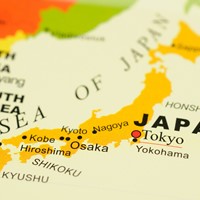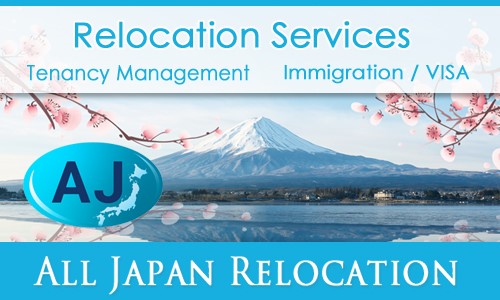10 Things Every Newcomer Should Know Before Moving to Japan

Moving to Japan is an exciting journey filled with unique cultural experiences, vibrant cities, and stunning landscapes. But for many newcomers, daily life can be very different from what guidebooks and online articles describe. From renting apartments to understanding Japanese etiquette, there are many lessons you learn only after moving.
This article shares 10 things I wish I knew before moving to Japan, especially focused on housing, lifestyle, and practical tips for foreigners. Following these insights will help you settle in more comfortably and avoid common mistakes.
1. Apartments in Japan Are Much Smaller Than You Expect

Space is a premium in Japan, especially in major cities like Tokyo, Osaka, and Yokohama. Even “spacious” apartments are often smaller than Western standards. Kitchens, bathrooms, and closets are compact, and living rooms may barely fit a sofa.
Tips for Apartment Living:
- Measure your furniture before moving.
- Consider furnished or monthly apartments, which can save time and money on appliances and utilities.
- Multi-functional furniture (folding tables, sofa beds) is very helpful.
Many first-time renters in Tokyo find that apartments can be smaller than expected, sometimes making it difficult to fit larger furniture such as sofas.
>> Guide to Japanese apartment layout terms
>> Japanese Apartment Etiquette: Essential Rules for Expats
2. Key Money, Deposits, and Guarantors Are Common

Renting in Japan is different from other countries. Expect to pay upfront fees including:
- Deposit (Shikikin) – partially refundable
- Key Money (Reikin) – non-refundable “thank you” money for the landlord
- Agency Fee – usually one month’s rent
- Most rentals require a guarantor or a guarantor company.
Tips: Budget 4–6 months of rent for initial move-in costs. Most rentals require either a Japanese guarantor or the use of a guarantor company.
Many first-time renters are surprised by the total upfront payment and often underestimate key money costs.
>> Guide to Renting an Apartment in Tokyo, Japan
3. Cash is Still King, But Digital Payments Are Growing
While Japan is becoming more cashless, many small shops, local restaurants, and rural areas still rely on cash. ATMs at convenience stores (Such as 7-Eleven, Lawson, Family Mart) accept foreign cards.
Tips:
- Always keep some cash (around ¥10,000) for emergencies.
- Set up digital wallets for transportation: Suica, PASMO
- Use mobile apps to check which stores accept credit cards
Even in major cities, newcomers may find that cash is still necessary for many small purchases.
4. Garbage Separation Is Strict
Japan’s recycling rules vary by city and ward. Trash is usually separated into:
- Burnable
- Non-burnable
- Plastic containers
- Glass bottles, cans
- Oversized waste (Sodai-gomi)
Tips:
- Learn your local rules on move-in day.
- Check your city’s garbage separation guide, either through an official app, website, or printed booklet.
- Put trash out only on designated collection days.
Many foreigners are surprised by how strict garbage separation rules are and the need to follow them carefully.
5. Convenience Stores Are Essential

Japanese convenience stores (konbini) are more than snack shops — they are essential for newcomers. You can:
- Pay bills
- Print documents and tickets
- Ship packages
- Pick up ready-to-eat meals such as bento boxes, sandwiches, and packaged side dishes
Having a nearby konbini is extremely useful for daily life, especially in the first weeks after moving.
6. Public Transportation Is Efficient But Crowded

Trains and buses are punctual and clean. However, rush hour can be very crowded.
Tips:
- Use apps like Google Maps, Japan Transit Planner, or Hyperdia.
- Avoid peak hours if possible.
- Consider biking for short commutes.
First-time commuters may find Tokyo’s trains crowded, but learning the system early makes travel much easier.
7. Learning Basic Japanese Helps Immensely
English is spoken in some areas, but speaking even basic Japanese makes life much easier. Learn simple phrases for shopping, directions, and emergencies.
Tips: Take beginner classes or join community language programs. Apps like Duolingo, LingQ, and HelloTalk are helpful.
Even basic Japanese skills often make everyday life smoother and help build positive interactions with locals.
8. Health Insurance and City Registration Are Mandatory
All foreign residents must register at the local city office within 14 days of moving in. Most full-time employees are covered by their company’s health insurance, while others (such as self-employed or part-time workers) are required to enroll in National Health Insurance, which typically covers about 70% of medical costs.
Tips: Bring your residence card, passport, and employment/student proof. Always carry your insurance card at clinics.
9. Seasonal Changes Bring Beauty and Challenges
Japan’s four seasons are stunning, but each has challenges: spring (pollen allergies), summer (typhoons, humidity), autumn (cool evenings), winter (cold, snow in some regions).
Tips: Prepare clothing, allergy medication, and home appliances accordingly. Use dehumidifiers during rainy season.
Newcomers often find that each season requires different preparation to stay comfortable.
>> Seasonal Living Guide for Foreigners in Japan
10. Understanding “Mottainai” — The Spirit of Not Wasting
The Japanese concept of mottainai teaches respect for resources, including food, electricity, and water. It influences everyday habits.
Tips: Embrace recycling, reuse, and mindful consumption. Small habits, like turning off lights and saving water, are culturally appreciated.
Living with a mindset of “mottainai” helps reduce waste and feel more connected to Japanese life.
Final Thoughts
Moving to Japan is an amazing experience full of learning and growth. By understanding local housing practices, transportation, etiquette, and cultural nuances, you can enjoy a smoother transition.
Being prepared for apartment rules, seasonal changes, and daily life will help you adapt faster and make your stay enjoyable. Japan is not only a country to live in — it’s a culture to immerse yourself in.















